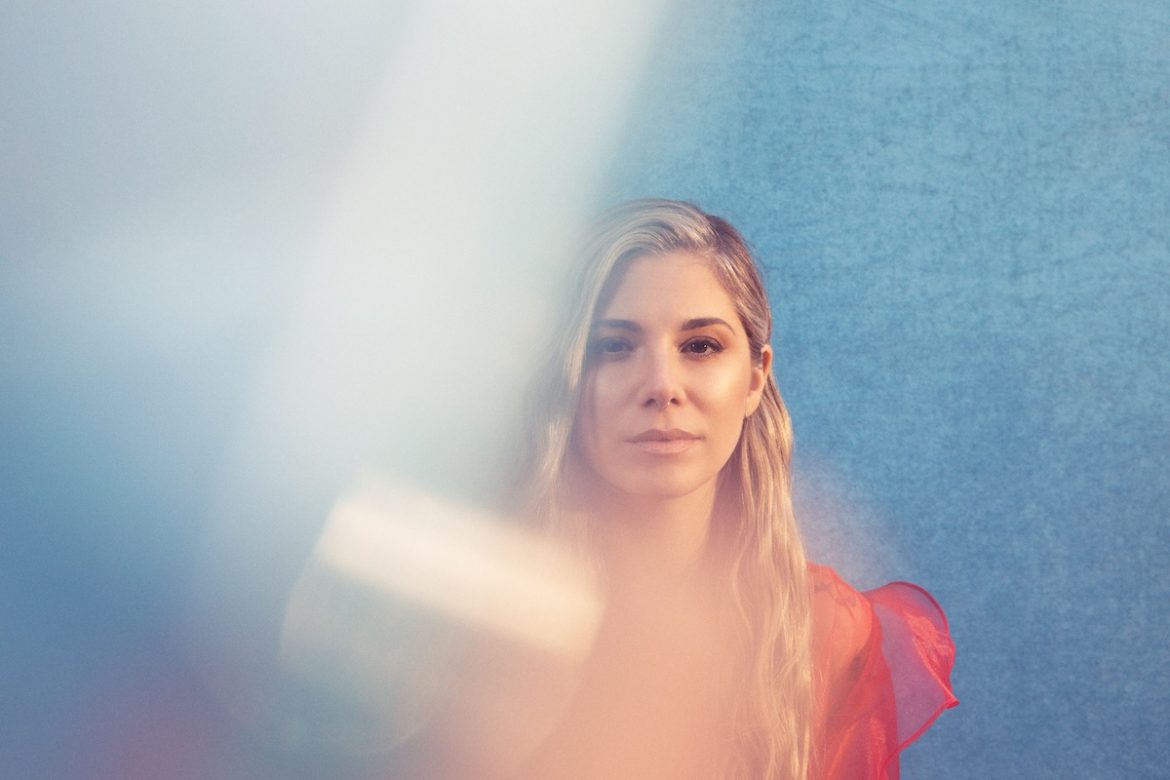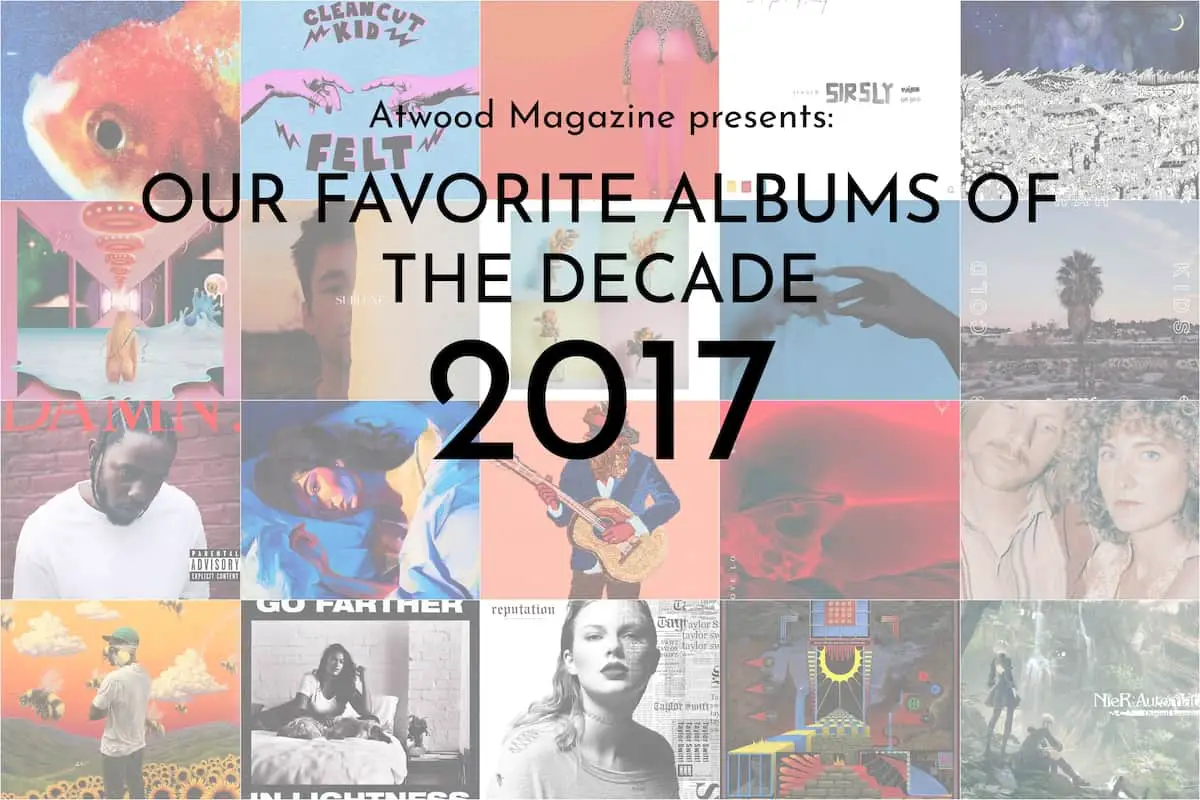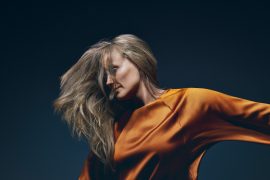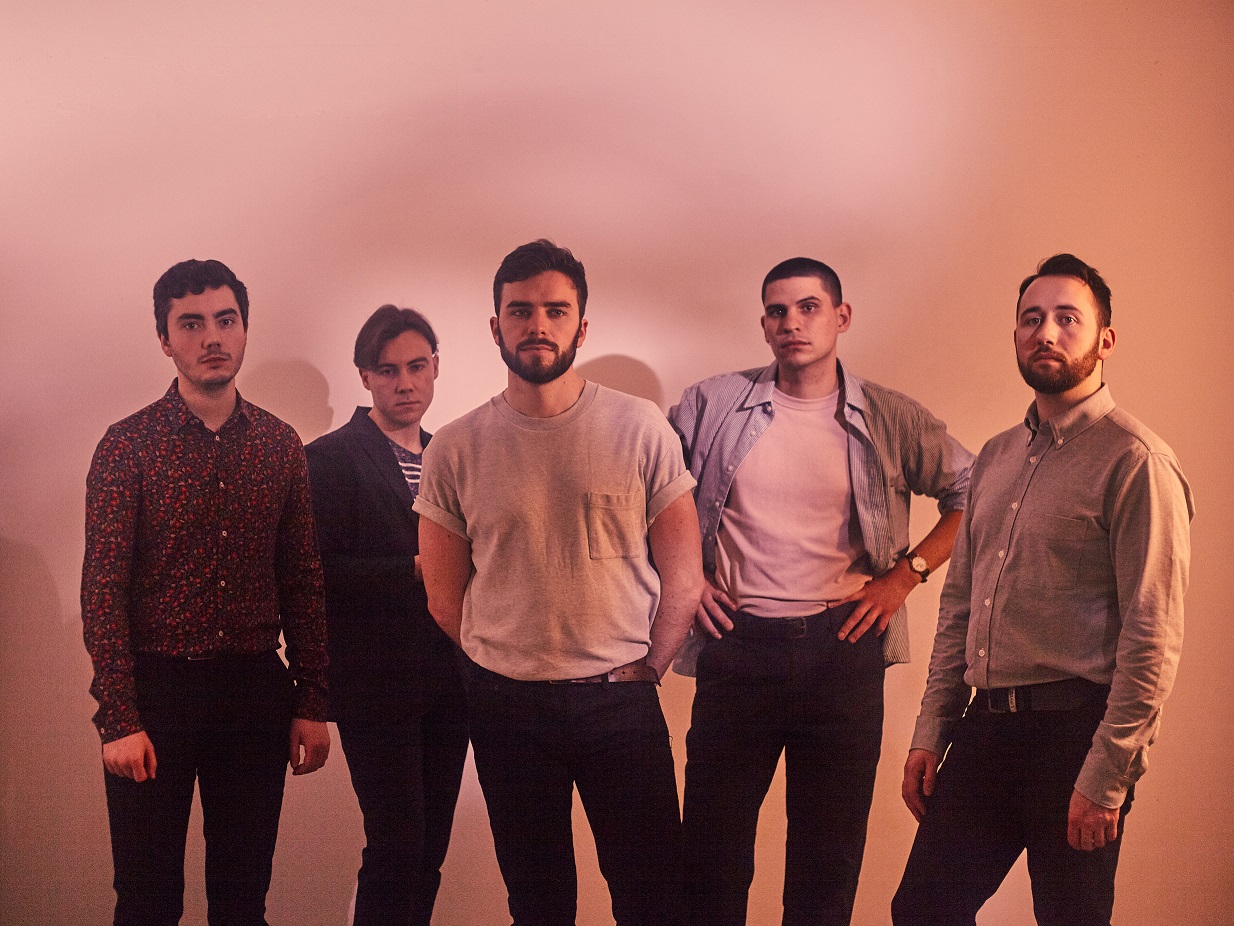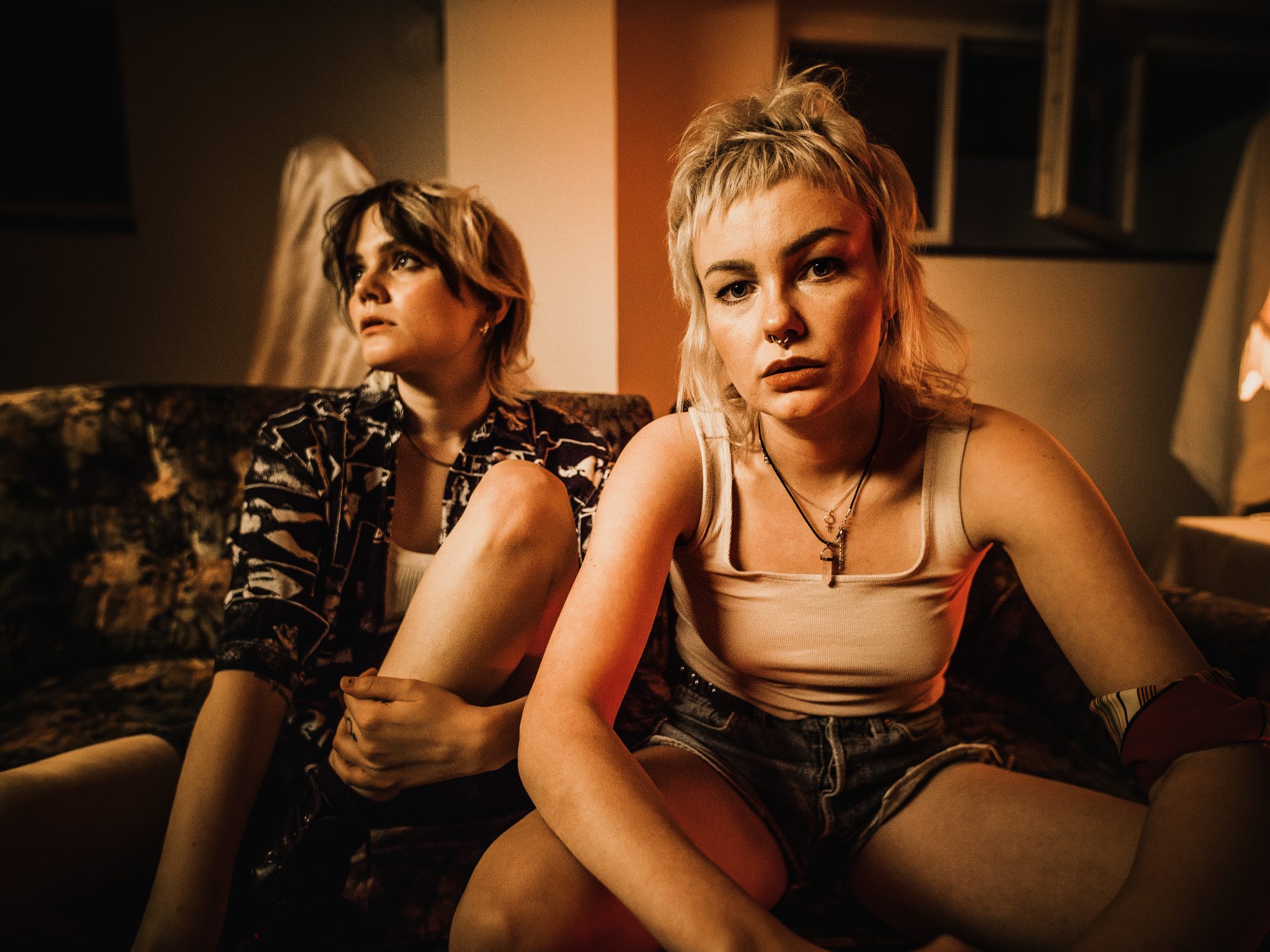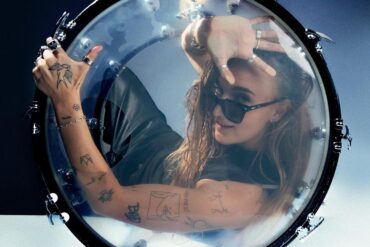Christina Perri opens up to Atwood Magazine about her new album, ‘a lighter shade of blue,’ a record that came from a place of deep grief but which ended in joy and beauty.
Stream: ‘a lighter shade of blue’ – Christina Perri
Not to measure or compare grief in any way, but life’s just kinda hard for everybody is what I’m learning in my 30s. I’ll never stopped having inspiration to write really emotional things regardless of how put together I look or how many things I tick off my list.
Christina Perri released her first song “Jar of Hearts” from her debut album Lovestrong in 2011, which cemented her reputation as both a critically and commercially acclaimed singer/songwriter with a fondness for dark ballads. Perri followed up her debut with 2014’s Head or Heart, which spawned the powerfully raw track, “Human.” Along with writing songs for her own projects, Perri also wrote the song “A Thousand Years” for the last of The Twilight Saga films. The track has over 2 billion views on YouTube and has been played at weddings all over the world.
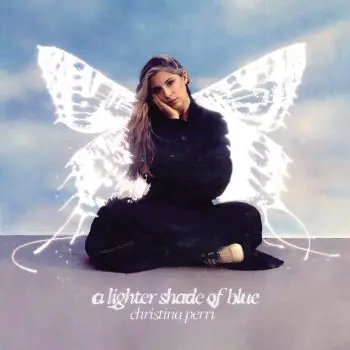
Since 2014, Perri has toured extensively, gotten married, become a mother, and written two lullaby albums for her daughters Carmella and Rosie, the latter who sadly passed away in November 2021. Perri has also continued to be a voice for mental health awareness. “I’ve always just been open about it. It’s never been even the thing I think about, ‘Oh should I share this?’ and the truth is, I just don’t know how not to. Maybe I’m just an over sharer, it’s sort of my personality but I certainly never think twice about it.”
Perri’s brand new album a lighter shade of blue crests the waves of immense grief, heartbreak, and joy.
Released July 15, 2022 via Elektra Records, it’s an album that could only be made by a woman in her 30s who has experienced all that can be wonderful and awful in life and love. It’s a record filled with both deep catharsis, but also an understanding of the self and of past selves.
The song “back in time” chronicles the feeling of going back in time to a relationship that ended and deciding that relationship ended when it was meant to. “home” is about returning to the sort of freedom that only innocence can give you. The track “blue,” which is where the title of the album comes from, is the acceptance of the darker parts of yourself and that those darker pieces might actually be a conduit to the light. Grief and hope hold hands on this album, particularly on the first single “evergone,” where the stagnation of grief is set against the cruelness of life continuing in blissful ignorance to your suffering.
I don’t wanna keep going on without you
Grow around the pain if I have to
So I make a space inside my heart
Where no one is ever gone
In 1954 the American poet Robert Frost was asked what the most important thing he had learned about life. Frost paused for a moment and then answered, “In three words, I can sum up everything I’ve learned about life. It goes on.”
Atwood Magazine spoke to Christina Perri from her in-laws’ house in New Jersey, where Perri was staying with her husband Paul Costabile and their daughter Carmella.
As sad or melancholy or emotional as the songs are on this album, I think you can hear the joy and the beauty of this reprieve almost, from the scary things happening in the world. We were all just kind of huddled together and we’re proud of it.
— —
:: stream/purchase Christina Perri here ::
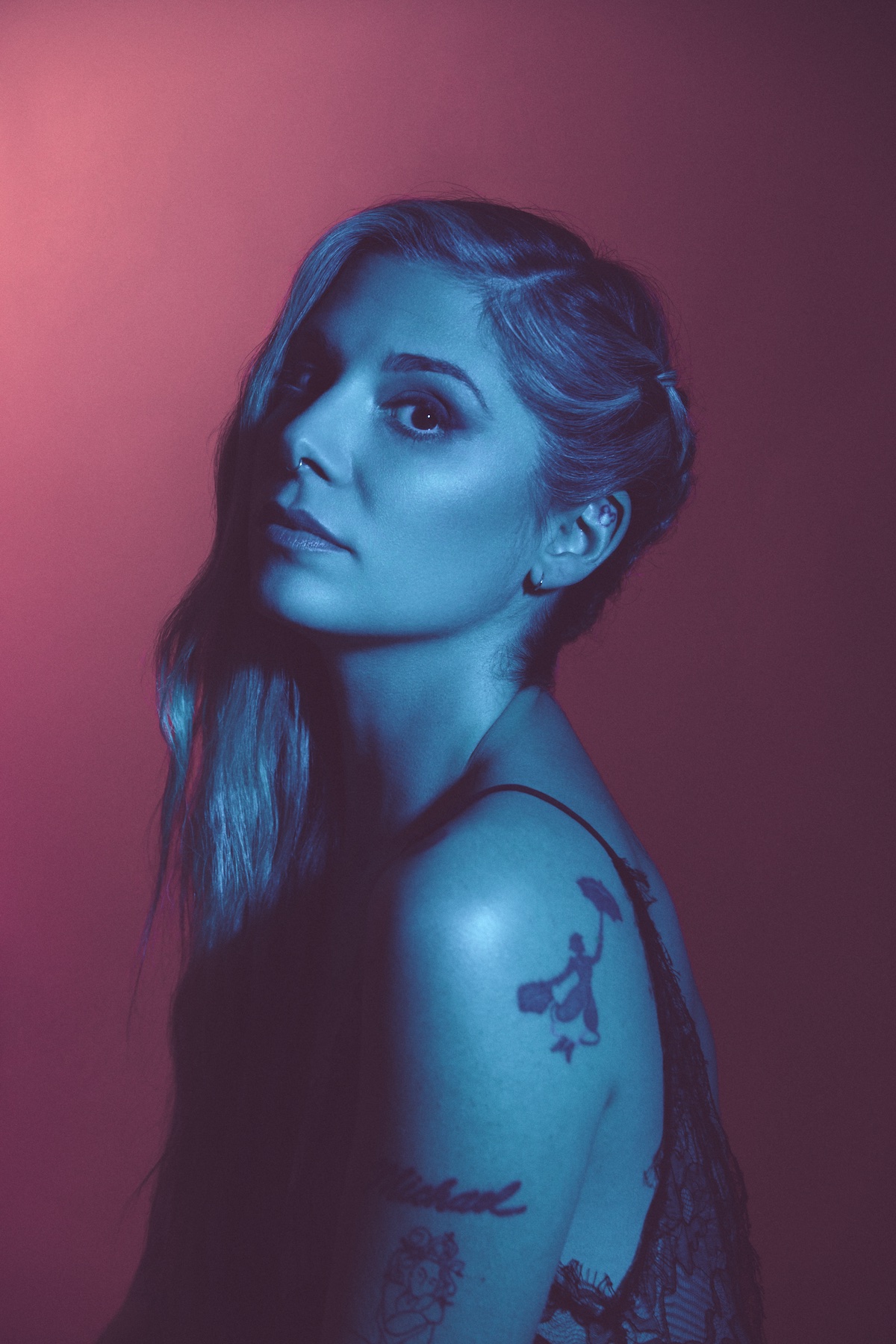
A CONVERSATION WITH CHRISTINA PERRI
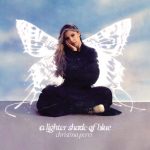
Atwood Magazine: I just wanted to jump straight in and ask, it's been eight years since you released a traditional pop album so how was it going back in and writing and recording a lighter shade of blue?
Christina Perri: Oh my gosh, well what’s really funny is the past eight years seem, well, two of those years I was on tour promoting her Head or Heart, and then I’d say the last six years I’ve been making this album.
I started writing it all that time ago and then life just got really complicated. Not just for me but for the whole world. There were so many things that occurred in the past five or six years, personally, professionally, universally, globally. It’s been a lot for everyone, so oddly enough it doesn’t feel that long to me. I had four pregnancies, I got married, I lived in two different cities and then there’s the global pandemic, but I was still writing songs the whole time, so there is a sort of thread that at least holds the record together for me, you know?
The songs that I wrote in 2016, 2017, 2018, 2019 and 2020, they’re all on this album, so it was not a matter of starting recently and ending it recently. It really was an accumulation of experiences over all these years, so it didn’t feel jarring in any way to make it, but it also felt really special to finally get in the studio and record. All those years I was sort of just collecting songs. As a songwriter and we end up with like 40 or 50 songs for project, and then you have to pick the ones that make the album.
For me, I will say, it was the middle of the pandemic, it was the summer of 2020 and I flew Jenn Decilveo, my producer, to a little town here in New Jersey to work on this album because the world was shutdown. At the time I was seven months pregnant and so I couldn’t fly to Los Angeles, so I asked her to come to Jersey, and she literally lived in my parent’s garage. We had spaghetti dinners every night with my husband and my daughter. It was so fun. We really had a good time, which I think you can hear.
I was saying this on stage the other day when I was in Philadelphia. I feel like an album is a moment where the recording of it – I mean the writing, like I said, took place over six years, so you can’t really pinpoint that – but when you actually sit in a room and record this music, you are capturing that moment, that month, that day, that feeling, that experience, that vibe, so with Jenn, Gena Johnson from Nashville, my sister-in-law, who was vocal producing, Nicky Costabile, and me, it was just the four of us girls and we were just hanging out laughing, having a great time. Carmella was there, my daughter, and it could not have been a better experience. I think you can hear that as sad or melancholy or emotional as the songs are on this album, I think you can hear the joy and the beauty of this reprieve almost, from the scary things happening in the world. We were all just kind of huddled together and we’re proud of it.
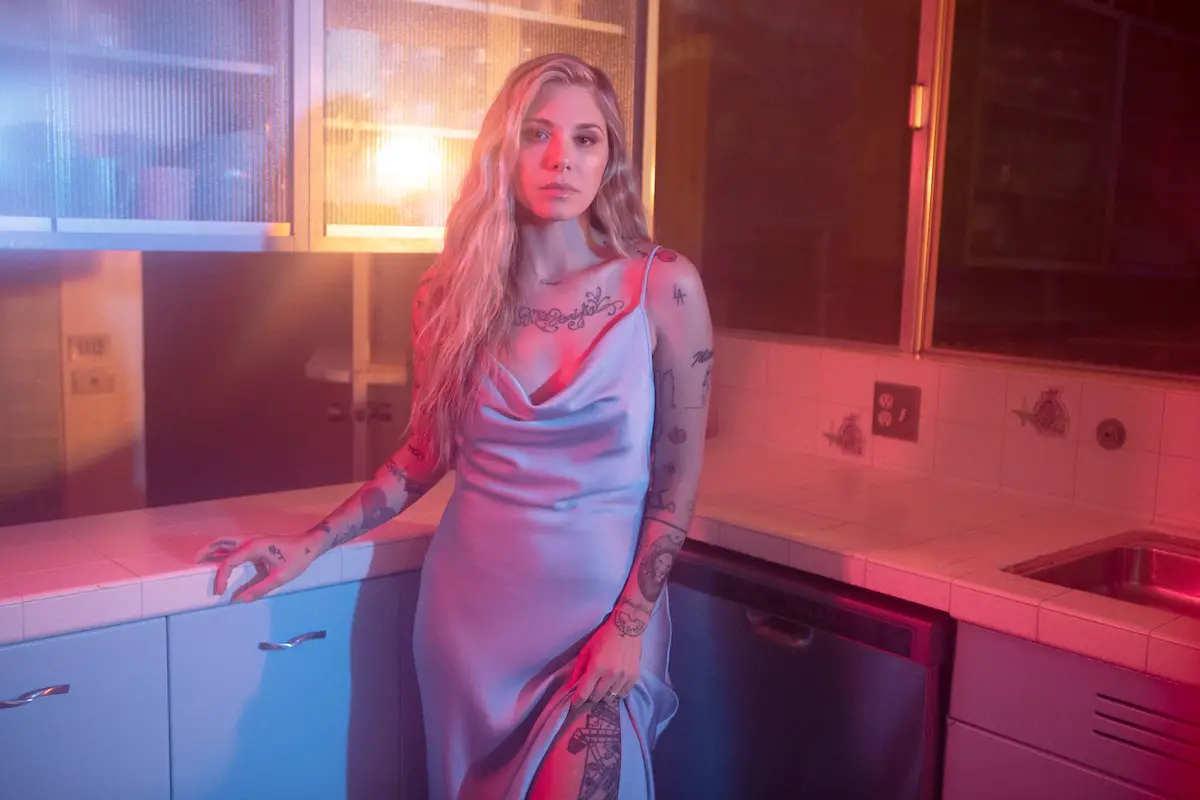
I was listening to the album today and I was thinking about how it feels very much like an album made by a 30 something year old woman. Songs like “home” or “back in time” or “blue” have a stillness and a patience about them. There's also a lot of looking back on this album and kind of reassessing it. For instance, “back in time” is about whether if you could, would you return to an old relationship. A lot of songs that have that story, talk about just wanting to go back to that person because it was a magical, whereas you have the awareness to say, “actually it ended when it was meant to end.”
Christina Perri: I joke around with that song because my husband Paul… Well, I never had a husband when I wrote Lovestrong or Head or Heart. I was very much in my Olivia’s Rodrigo years. right? I was angsty, dating really awful guys. I’ve only ever really told the true narrative of my life. I’ve never put on a different story. I’m definitely in my 30s, I’m definitely married now, and I’ve definitely had a lot of grief and a lot of things have happened that I’m writing about, but it is cute because I also never had a husband who cared what I was writing about. So when I played him “back in time” I was quite nervous and I remember him hearing it and the colour sort of draining from his face and I was like “Oh no” but then at the end I don’t get in the time machine, and he was like “Oh my God, I love it, I love it”. Thankfully for that very last word, up until then he was not sure and then at the very end, I say, “I wouldn’t get in it” and so now he loves that song.
It’s really funny how personal my music is and how there is no real division. I have a family now that listens, and even my daughter Carmella gets very emotional when she hears me singing “Human” because she says “Mommy are you in pain? Are you okay?” She’ll hear me rehearsing it and she’ll come over and she’ll just have tears in her eyes and say, “Mommy, are you OK?” and I’m like “Oh my God”. Because, first of all, she’s so cute and emo like me, and I love that and because raising a little me I know exactly what to say to her and the things I wished my parents said to me and so I’ll say to her, “Oh, no mommy is totally fine. That was how I felt in 2014. That was a long time ago and I don’t feel that way now”, but it is profound when your career and your real life are just sort of the same thing.
You’ve always been incredibly honest about your mental health, whether that's through your songs or what you’ve said in interviews, and I know you've continued to be honest about your pregnancy and your miscarriage and the death of Rosie. I'm wondering how your relationship with mental health has changed over the years from making your first album to this one, and from it being a topic that not many people would talk about, to it becoming a massive industry of wellness and self-care?
Christina Perri: It’s a really good question. What’s so funny is it really hasn’t changed for me. I think the world changed but if I were look back at interviews of me from maybe 2010 or 2011, I bet you I was talking about therapy and sobriety. They’re always sort of on brand because I was singing about that stuff, so I didn’t have to go out of my way to bring things up it because was always just the truth of a song. Especially “Human” that song I really did talk about how vulnerable and broken I felt and then I would always sort of explain my process of healing.
Interestingly enough, I have to say, someone online put together an image of all three of my album covers and I did not think this at all until they did it, but they put them in a row and the first album Lovestrong, I’m black and white and look very angry. The second album cover it’s just my head upside down and I look like I’m in a cocoon, literally, and my album now, a lighter shade of blue, I have butterfly wings! I was so taken aback by that because, like I said, I didn’t put that together but that couldn’t describe it any better. That’s truly what the past twelve years of my life have been, but I will say that I’ve always shared about it because I always do the work. I always go the extra mile to get better. I have been sober for ten years but I had to add couples therapy to my marriage. I had to add a grief therapy for my family when we lost my daughter.
I’ve been this way certainly since the beginning and I guess the good news is, I haven’t closed off. I started really open and overtime, maybe people who have my job or who have experience in the spotlight in any way, they might close themselves off from it and I have to say, I guess I’m grateful that I have remained open.
I honestly can’t take credit for that I think that it’s down to how loving the people that buy my music are and the people that follow me on social media, and the people that hang around are. I think they are very loving and supportive, and they’ve grown up a little bit with me. I do feel like the women my age that are listening to my music, we’re kind of going through similar things so it helps that I get to continue the conversation with women and people about healing and mental health. I don’t even know any other way to be, but I’m very glad for our culture and our world, as scary as it is right now, we are moving forward in that capacity. Where it’s becoming more and more normal to talk about and I think other people are more comfortable talking about it.
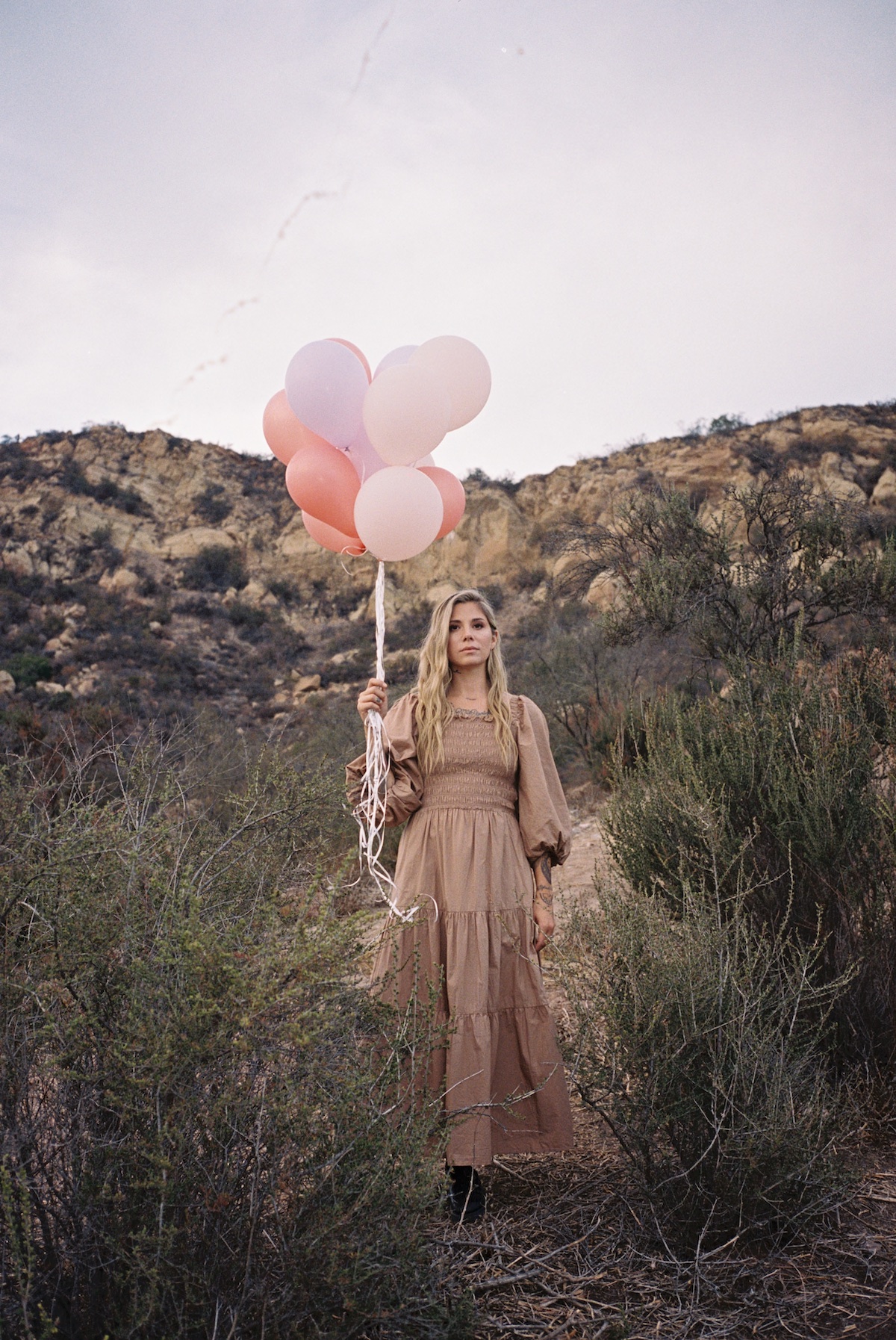
I feel like when you talked about it in the past and most recently, it's not disingenuous. You come from a place of experience in the way you talk about it. Yes, it's very personal to you but you always give the impression of being very knowledgeable about mental health and being very honest. I think you said that the reason you were able to make this record and could make this record, was because you did the work.
Christina Perri: I tell everyone how hard it was. I love talking about it because I love telling people exactly what it looked like, and not in a pretentious or arrogant way saying, “these are the things I did, and they worked”. No, it was it was months, it was a year, it was treacherous, it was…. I had to try 15 things… I feel like if I didn’t get to share that part, I certainly would look like I had it all together, and I’m happy to share hope. I think hope is my favourite thing that I’m able to let people hear on this album.
Obviously, the theme of the album is going from a very dark place to very light place but remaining true to who you are, which is what the whole blue concept is about. About being dark blue my whole life and doing the work and getting light blue, and I know that sounds easy, so I love being able to break it down for people. In fact, my best friend said to me, before the album came out, she said, “You know we’re all worried that your album’s going to be too happy because your life appears on the outside as being so good.” and I said, “Don’t worry. The universe threw me, you know, twenty-five curveballs.” And that’s real life. Not to measure or compare grief in any way, but life’s just kinda hard for everybody is what I’m learning in my 30s. I’ll never stop having inspiration to write really emotional things regardless of how put together I look or how many things I tick off my list: Getting married, having a baby. You know, the reality of how intricate and deep, and how many layers there are to all that is this is the sweet stuff for me. That’s what I like to write about.
Christina Perri: 100%. Well, first of all, thank you. I wrote that song with Luke Sital-Singh, a wonderful British songwriter who lives in LA now, but I was his biggest fan and he wanted to write a song with me and I was like, “Are you sure?” because he’s like so quiet and British and reserved and I’m just like really loud and I was like, “Oh my God, I don’t know if he’s gonna regret this” but it turns out it’s like our favourite song we’ve ever really written with anybody. I think the reason why that was song is so profound and fascinating is he too was always the sad guy and is that in his career and so I’ve always been a sad girl.
I think really pointing out what you just said is, yes, I’ll always have the depression, the anxiety. I have a nice list of things that that could be negative and in my 20s all I wanted to do is change that. To turn it off, change it, get rid of it. Its why people drink and do drugs, to quiet it or to get rid of it, you know, and I didn’t have that option so I had to find another way and truly, as simple as it sounds, I just stopped trying to be somebody else and it wasn’t until that happened that I could feel any sense of freedom and the freedom was accepting that I am just this colour. It could be any colour for me, obviously, but because I’m dramatic, I picked blue, but I just finally stopped trying to be somebody different and I mean that in every cheesy way I possibly could. It was just a profound moment.
I think it happens sometimes with motherhood or with trauma or ageing. Maybe it’s a combination of the three but I truly remember feeling it and being like, “Wow OK, I’m gonna at least, I’m gonna take a break here trying to be a different human being” and as soon as I did that I started to really heal. That’s when I felt like I found the secret, which is like stop trying to turn it off but learn how to live with it. Do the work to just lighten it. I mean that colour wise but also weight. The weight of depression, the weight of anxiety. Whether that’s medicine, which works really well for people and that helps lift that weight. Or if its therapy, who knows. I mean there are so many options, like you said, it’s a whole industry of mental awareness. I think it’s such a wonderful thing when we find something that really works for us, and for me it was just really a lot about letting it go. I think this surrender was my biggest help.
Jenn Decilveo produced the album, Gena Johnson engineered it, and your sister-in-law Nicky Costabile did vocal producing, so there were lot of women in the room in positions of power, which is brilliant and wonderful, because this doesn’t happen as often as it should. Was it a deliberate choice to have more women with you when you were recording and whether having that dynamic felt like a safer space to create because of everything you had been through?
Christina Perri: Well, that’s amazing that you figured that out, but it’s like four-fold. What originally happened is, I was at the Grammys maybe 2018 or 2019, I don’t recall which Grammys, but they put out like a meme online and it said a statistic that said 2% of women were producers and 3% were engineers, and I remember, I wasn’t even making an album at the time, and I was so crushed by reading that.
Obviously, I could guess having been in the music industry for ten years at that point that I hadn’t seen a lot of women doing these jobs but to read it was something different. It really kind of hit me and it just kind of struck me, so I thought to myself, “Oh, I’m the type of person and I have the role that would hire these people, right?” You can hope that women get hired, you can promote your friends but if you’re not the one who’s hiring them that change is not occurring so when your record label gives you a list of 45 guys names for writers for your record you have to say “Actually, can I have a list of only women?”, which is what I did.
I decided very, very intentionally that I’m only going to write with women and I’m only going to hire women if I can or if it makes sense to, and you know, there were some guys on the project which I think is really funny because all I really did was flip the statistic. Before, for my personal projects it was usually 99% men and 1% women, and now I switched it to about 93% women and 7% guys because I have David Hodges who is a must-have with me and my music.
I didn’t want to shun or shut out the men because that also feels very masculine. I wanted to include and lift everyone up, but I wanted to make the biggest effort ever to hire women, and it coincided perfectly for the time in my life where I had just given birth, just become a mother, raising a daughter, and going through grief so these were four massive elements for me that made me feel connected to my feminine for the first time ever.
My daughter has such an impact on me personally, as cheesy as it sounds, it’s just the truth. It came at the perfect time for me to feel comfortable in a room with other women. I didn’t want to sit in a room with the 24-year-old guy and sing a song about angst, it just wasn’t where I’m at in my life. There’s nothing against that or that season of my life or for men that do that, but I was just not there.
Everybody was so jazzed up about it. My record label gave me the list of women and then I wrote with Jenn Decilveo and we connected so deeply that I was like, “I want you to do the record.” Jenn brought in Gena Johnson, I brought in my sister-in-law Nicky Costabile and together we all just kept hiring more and more women. Women musicians, mixing engineers, everything. Joe Zook mixed my album and Michelle Mancini mastered my album. It was a real effort, but it was the best feeling ever – the best experience I ever had making an album. The best my voice has ever sounded, and I think that really goes into a woman asking me what I wanted to sound like for the first time.
I decided very, very intentionally that I’m only going to write with women and I’m only going to hire women if I can or if it makes sense to.
Do you think there's a difference in how women produce and engineer versus how men produce and engineer?
Christina Perri: Yeah. My most specific example is that Gena sat with me for a whole day and said how shall we make your voice sound, and no one’s ever done that with me before. Sat with me until we got it right, so that immediately made my experience as a singer better.
Everyone’s talent was massive but there was zero ego in the room, and no competition. Everyone wanted everyone to love what they were making. And there was a warmth. I always talk about the warmth because even though Jenn and Gena aren’t moms yet, it wasn’t a maternal warmth, just a feminine warmth. There was no conflict, again, no egos because these are the things that make conflicts. We had disagreements for sure. We would have these heated moments, but they were still in some way really funny and warm and resolvable, and no one was offended.
It’s so interesting how we’ve been told this narrative that women are catty and it’s just not true. I wonder who made that up because here I am, I’m 35, I’m wondering when am I going to have that experience because I haven’t. Maybe it is part of what I bring to the room, but I haven’t had that experience of women being hard to be around. I think if anything, we just made the most of it. We also got so much work done in three weeks because we were so productive. I can’t say enough good things about working with women.
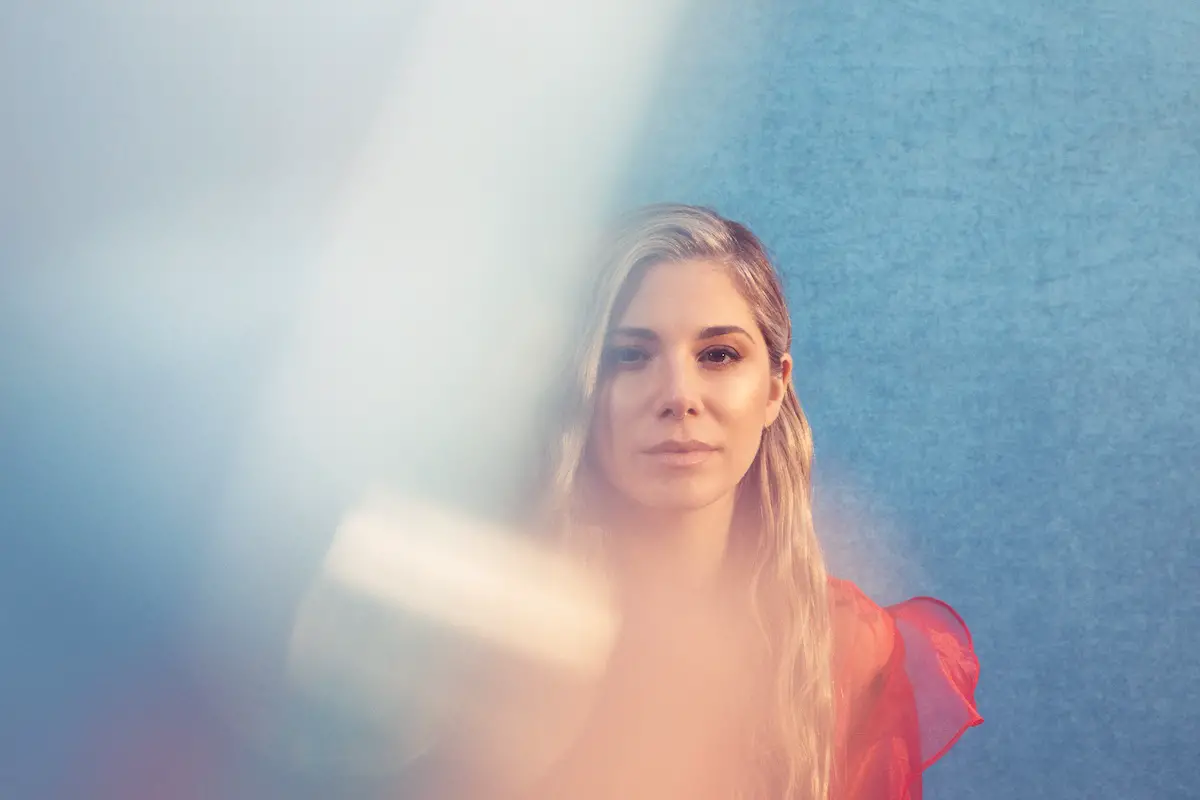
That's awesome and makes me very happy and gives me hope. The fact that your label gave you like 45 male names but didn't think about what about giving you 45 women’s names...
What is the newest song on the album?
Christina Perri: The newest for sure is “evergone.” We finished the album before Rosie passed away. I was pregnant with Rosie when we were recording it, so we finished at the end of October of 2020. We were mixing, mastering, we were really all steam ahead and I was planning on having Rosie first and then putting out the album and then touring. That was going to be what 2021 looked like. But that’s not what happened. Rosie passed away November 24th and everything shutdown, everything stopped.
For four months I didn’t hear from my record label. Everyone let me grieve and heal. Then at some point it was Christmas. Then at some point we moved to LA. I just wanted to get away of the East Coast. We were just trying to heal as a family, and I wasn’t sure how I would ever do this again. The truth is when your life is blown open like that in whichever capacity that grief manifests in your life, it is hard to ever be the person you were before an event like that happened. At least that’s my experience, and so I just kept thinking, “Well surely I’m just going to not do this anymore” because how would I get up on stage and sing pop songs that just seemed so unimportant, and that’s what my grief looked like for a while.
They do say, because I’ve done so much work, when you can’t picture your future-self, that’s the definition of trauma being traumatised. When people go through any kind of trauma, whether it’s a car accident or losing someone, until you can picture your future-self you are not healed, you are still in transition and you need to do that work. If you can picture yourself in the future, then you’re on the right path or your healing has begun and what that means is that your trauma is integrating into your brain in the correct place, which is basically what you know trauma means, it’s in the wrong place. I went straight into EMDR therapy (Eye Movement Desensitisation and Reprocessing), straight into trauma therapy. I was absolutely traumatised from that experience, especially giving birth and meeting Rosie and all these things I had to work through.
Around January or February of 2021, I heard from my A&R guy Pete Gambarg. Pete’s been my guy from day one for twelve years, and he’s like a family friend at this point and he felt comfortable enough to say, to have the conversation with me and ask, “What are we doing, what are you thinking, how are you feeling?” We talked a bit and he said he’d heard a piece of this song, which is interesting because my whole career I have never taken anybody else’s music. I’ve only ever written a song in the room and in real time from my body first and so he said, “I just want to send you this thing. Listen or don’t listen.” He was very whatever about it, and he sent me a piece of “evergone”. He said it moved him and it thought it might move me too. What’s interesting is he really saved me.
He sent me the piece and I took it to Jenn, and Jenn and I wrote the rest of the song. We obviously we made it about Rosie, and I made it sound like me and all these things, but it came from Pete, and I realised that I could only put the album out if I were to represent her. It would have to be the first thing I sing about, the first thing I talk about, and the last song we add to the album. We had to open it up and put it in there, and it wouldn’t be complete without that. I feel very good about honouring my truth. I couldn’t have gotten here, a year and a half later, promoting the record, talking about Rosie, singing the song every day, singing it on TV, telling stories on stage, I can’t even imagine if I just skipped over this. It just wouldn’t exist for me. It was in an impossibility for me to pretend I didn’t go through what I just went through, and I waited until it was a possible for me to talk about it. There was a period where I was not OK, and now I am. I think it’s a direct result of the work but also just healing and love and support from everyone. Also writing a song is my way to heal. I’ve always joked about how I had to get a tattoo, I had to write a song, and I had to go therapy. Those are my three healing mechanisms.
Thoughts of you bring me back
To times I thought we’d always have
Who knew the world could spin so fast?
I didn’t
The last song, “roses in the rain,” that wasn't really the last song?
Christina Perri: No, it was “evergone.” I wrote “roses in the rain” about my miscarriage because we were going to name that baby Rosie. This is so wild because “roses in the rain” is about miscarriage. Well, it’s about the Monday morning after someone passes away. It’s about grief, but for me, the truth is, I wrote that in February of 2020 before I was pregnant with Rosie, right after I had lost my second pregnancy at 11 weeks. We were going to name our second child Rosie so then we had the next pregnancy and she lived all the way to 34 weeks, so we had her nursery ready, her clothes, everything, and we were naming her Rosie after the little life that we lost ten months before that. “roses in the rain” was almost a foreshadowing. It also represents how universal grief is. It doesn’t have to be about Rosie but it wasn’t enough to represent Rosie, so I needed one for her and that’s why we waited for “evergone”.
I obviously look at the light side of it now and how I’ve never been afraid to sing about heartbreak. Now my heartbreak just looks different. It was postpartum depression, it was miscarriage, it was grief, it was pregnancy loss. I’m describing the same sort of pain and the same emotions for people, it’s just different colours.
— —
:: stream/purchase Christina Perri here ::
— —
— — — —

Connect to Christina Perri on
Facebook, Twitter, Instagram
Discover new music on Atwood Magazine
? © Lauren Dunn
:: Stream Christina Perri ::

